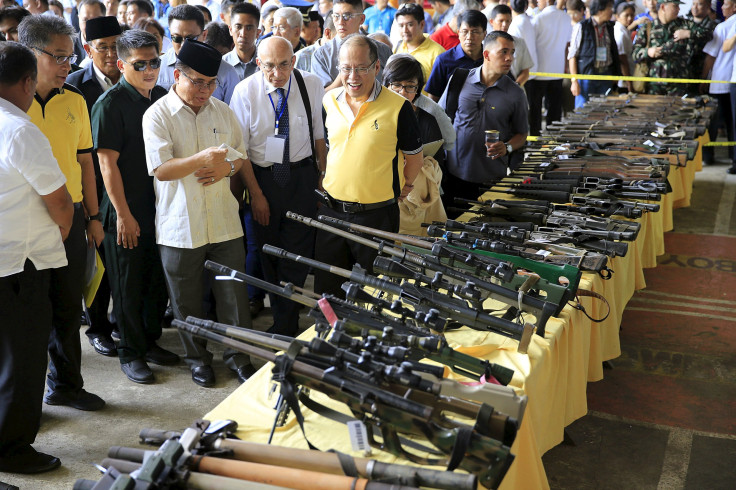Philippines' Aquino Plays Down ISIS Presence, Blames Mercenaries

Philippine President Benigno Aquino has sought to assure the public that there are no Islamic State group militants in the country's volatile south, dismissing those behind a recent spate of attacks as local "mercenaries" trying to attract attention from the Middle East-based terror group, a report said Thursday.
His statement appeared to go against the warning of Murad Ebrahim, the leader of the country's largest separatist force — the Moro Islamic Liberation Front — whose peace deal with Manila, signed in 2014, remains stuck in legislative limbo.
Murad told reporters in Malaysia this week that ISIS could capitalize on the delay to attract local members frustrated at the deal's glacial implementation.
"They attacked to call attention to themselves — based on the opinion of our intel community — (to gather) funds from the Middle East. In other words, they were showing off," Aquino said, according to the Manila Times .
“Is it ideological or religious? They will say it is, but, primarily, we believe it is by mercenary reasons that are prompting them to do this,” he said.
Aquino was referring to recent clashes between the army and a self-styled ISIS-linked fighters, called the Maute group, that left three soldiers dead and 11 others wounded in a remote section of Lanao del Sur province, in the country's Mindanao region.
One of the soldiers was beheaded, and ISIS paraphernalia were recovered by troops when they overran the group's position. The military said up to 24 militants were killed in the operation, which also displaced thousands of residents.
But Aquino dismissed the Maute group as not purely ISIS, arguing that they were only "consigned to putting up the black flag ... to call attention to themselves.” He said they were mostly composed of remnants of the Filipino branch of the Jemaah Islamiyah (JI), once linked to Osama bin Laden's Al Qaeda network, which many analysts in the region have branded a spent force.
The JI — based in Indonesia, home to the world's biggest Muslim population — was blamed for the 2002 nightclub bombings in the resort island of Bali that left 200 dead. Successive crackdowns by authorities had effectively weakened the group and its regional affiliates, which are now mouthing pro-ISIS slogans.
Malaysian militants hiding in the Philippines' south are also reportedly planning to organize a Southeast Asian branch of ISIS, and last week, Malaysian Prime Minister Najib Razak vowed to fight this emerging threat with the help of Saudi Arabia.
The Moro front, which had once fought for a distinct Islamic state in the Philippine south, had denounced ISIS and under the terms of its peace pact with the government is helping security forces fight terrorism. But in February, it said it would continue to remain a "revolutionary organization" pending congressional approval of a law granting it power over an expanded autonomous region in the south.
© Copyright IBTimes 2025. All rights reserved.





















